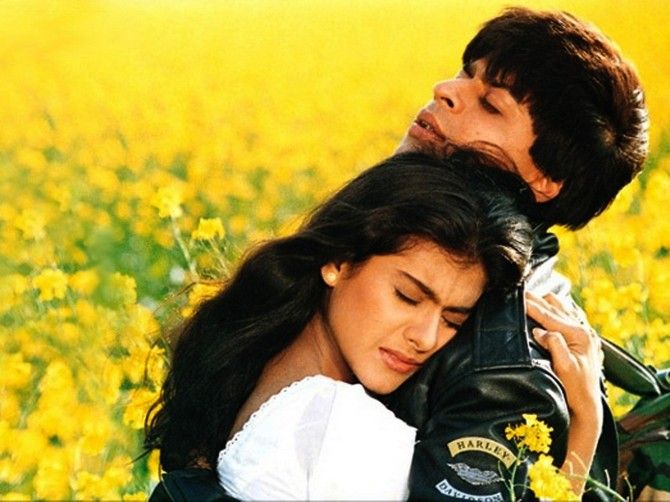'Aamir Khan, Shah Rukh Khan and Salman Khan now act in only about one film each year, and made money through advertisements and television.'
'This meant that many people, even if they had the money to spend on a movie and wanted to go, often had nothing available for them to watch,' says Aakar Patel.

A few years ago, Bollywood asked for help in financing its movies. At that time banks were not allowed to give loans to producers. This was probably because things like scripts and actors' dates were not considered to be collateral.
This meant that producers often raised money from other sources, and sometimes that involved the underworld. It was not uncommon, about 20 years ago, to read reports of filmstars and producers being in touch with criminal figures.
That seems to have stopped in recent times and there are other ways for filmmakers to raise money today. This would indicate that Bollywood should now become a major industry and grow much faster than it has ever before. The reality has been different.
A few weeks ago, the famous producer Karan Johar was interviewed on the business of cinema and he said something that insiders have known for a long time, that the number of people watching movies in India was actually falling every year.
Some of the reasons for this are to do with infrastructure. India has only one screen per lakh of the population. The United States, the world's biggest film industry, has 12. China, which through Hong Kong has the second biggest film industry, has about 2.5 screens per lakh.
As cities in India begin tearing down old cinema halls and build malls, the number of screens is set to go down even further. The other problem is that the multiplex screens in new malls are too expensive for most middle class families.
Tickets are around Rs 250 and taking a family to see a movie regularly would severely dent household incomes. Service tax and entertainment tax rates are high and there is not that much scope to reduce the prices of the tickets.
And it is not as if the producers and studios are being greedy. In fact one major producer, Walt Disney, announced recently that it would exit the Bollywood movie production business after it made big losses.
Some of the reasons for the decline in movie watchers have to do with the industry. A friend of mine said to me that the big Bollywood stars did not make enough movies and there was little to watch.
Aamir Khan, Shah Rukh Khan and Salman Khan now acted in only about one film each year, and made money through advertisements and television. This meant that many people, even if they had the money to spend on a movie and wanted to go, often had nothing available for them to watch.
Bollywood is one of only three major film industries, along with Hollywood and Hongkong and each of these three has a star system. This means a list of famous and recognisable actors who can guarantee a film will attract a certain number of viewers.
The problem has been that Bollywood, though it makes the most movies (if we include the films also made in the south Indian languages of Tamil, Telugu, Kannada and Malayalam) per year, has a limited number of big name stars. Hollywood has many more people who can star in a big movie.
The other issue is that unlike Hongkong's movies, Bollywood's are not universal. Why do I say this? Hongkong's martial arts movies are quite physical. Their stars like Bruce Lee and Jackie Chan have become famous heroes in America and also in India.
The Hongkong movies, because they are action-oriented, do not lose much of their quality when they are dubbed.
Indian movies are not action oriented, and the quality of the action is not as high as in Hongkong movies. Because there is music and dancing, the dubbing is not as easy to do and the loss of quality is much more.
This is the reason why the export earnings of our movies is much less than Hollywood and Hongkong movies. It is mostly people of South Asian origin which like and watch our movies.
Even here, the audience may be narrowing. In Pakistan, there is a big market for Indian movies in their multiplexes. For decades this revenue was lost to Bollywood because the movies were pirated.
Under former president Pervez Musharraf, the official screening of movies was allowed, benefiting both nations. Today all Bollywood movies are shown there. Unfortunately, the current state of ties between the two countries has been allowed to deteriorate so much that we should not be surprised if Musharraf's wise decision is reversed.
It is because of all of these reasons that Bollywood is not growing though it has great potential. It seems destined, along with the rest of India's economy, to be showing promise that it cannot match through delivery.
Aakar Patel is Executive Director, Amnesty International India. The views expressed here are his own.
- You can read Aakar's earlier columns here.










More from rediff